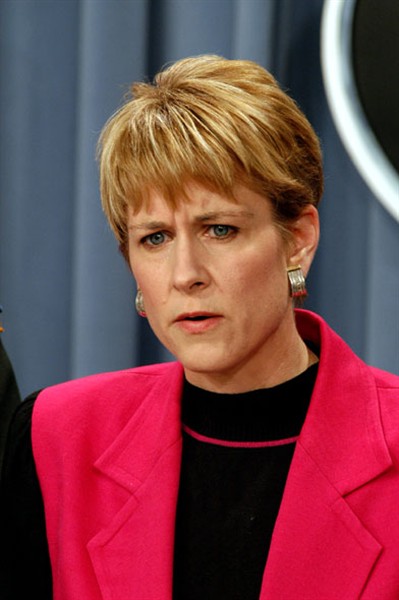Submitted by Diane Farsetta on
 In early 2002, as "detailed planning for a possible Iraq invasion" began, then-Assistant Secretary of Defense for Public Affairs Victoria Clarke launched the Pentagon military analyst program as "the main focus of the public relations push to construct a case for war," reports David Barstow. The gist of the program was the recruitment of "key influentials" to help sell a wary public on the war. The former Hill & Knowlton executive and her senior aide, Brent Krueger, signed up more than 75 retired military officers, who appeared on television and radio news shows as military analysts, and/or penned newspaper op/ed columns. The Pentagon referred to the military analysts as "message force multipliers" or "surrogates," and held weekly meetings with them, which continue to this day. The Defense Department also paid for some analysts to travel to Iraq and Guantanamo Bay, Cuba, encouraging them to counter negative press with Pentagon talking points. Former NBC military analyst Kenneth Allard called the effort "psyops on steroids." Many of the analysts were also lobbyists for defense contractors, and boasted of their Pentagon access to potential clients. This financial conflict discouraged the analysts from questioning or criticizing the Pentagon's claims. The Pentagon also tracked what the analysts said, via a six-figure contract with Omnitec Solutions, as William Cowan learned. He was fired from the Pentagon analysts group after saying on Fox News that the United States was "not on a good glide path right now" in Iraq.
In early 2002, as "detailed planning for a possible Iraq invasion" began, then-Assistant Secretary of Defense for Public Affairs Victoria Clarke launched the Pentagon military analyst program as "the main focus of the public relations push to construct a case for war," reports David Barstow. The gist of the program was the recruitment of "key influentials" to help sell a wary public on the war. The former Hill & Knowlton executive and her senior aide, Brent Krueger, signed up more than 75 retired military officers, who appeared on television and radio news shows as military analysts, and/or penned newspaper op/ed columns. The Pentagon referred to the military analysts as "message force multipliers" or "surrogates," and held weekly meetings with them, which continue to this day. The Defense Department also paid for some analysts to travel to Iraq and Guantanamo Bay, Cuba, encouraging them to counter negative press with Pentagon talking points. Former NBC military analyst Kenneth Allard called the effort "psyops on steroids." Many of the analysts were also lobbyists for defense contractors, and boasted of their Pentagon access to potential clients. This financial conflict discouraged the analysts from questioning or criticizing the Pentagon's claims. The Pentagon also tracked what the analysts said, via a six-figure contract with Omnitec Solutions, as William Cowan learned. He was fired from the Pentagon analysts group after saying on Fox News that the United States was "not on a good glide path right now" in Iraq.

Comments
John Stauber replied on Permalink
NYT, Barstow, Answer Readers Questions
The revelation that the Bush Administration spent millions of dollars in a massive pro-war propaganda campaign using scores of TV analysts - retired officers most of who had a financial relationship with military contractors - is stunning. Of course the story is being blacked out of the most important news media in the US, TV news, where most Americans get their information and through which the propaganda was delivered. Here the NYT reporter, David Barstow, and his editors answer questions about their piece:
http://www.nytimes.com/2008/04/21/business/media/21barstowqa.html
gmescafe replied on Permalink
I recently came accross your
I recently came accross your blog and have been reading along. I thought I would leave my first comment. I dont know what to say except that I have enjoyed reading. Nice blog.


العاب replied on Permalink
This war was one of the
This war was one of the biggest mistakes of America, and it's still paying the price without seeing any end to this chaos.
Harry replied on Permalink
Nice
Good